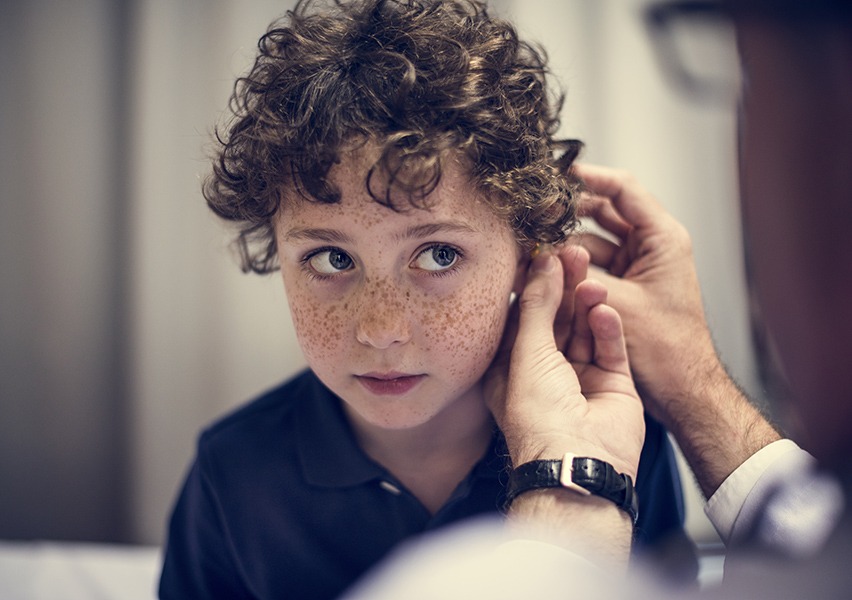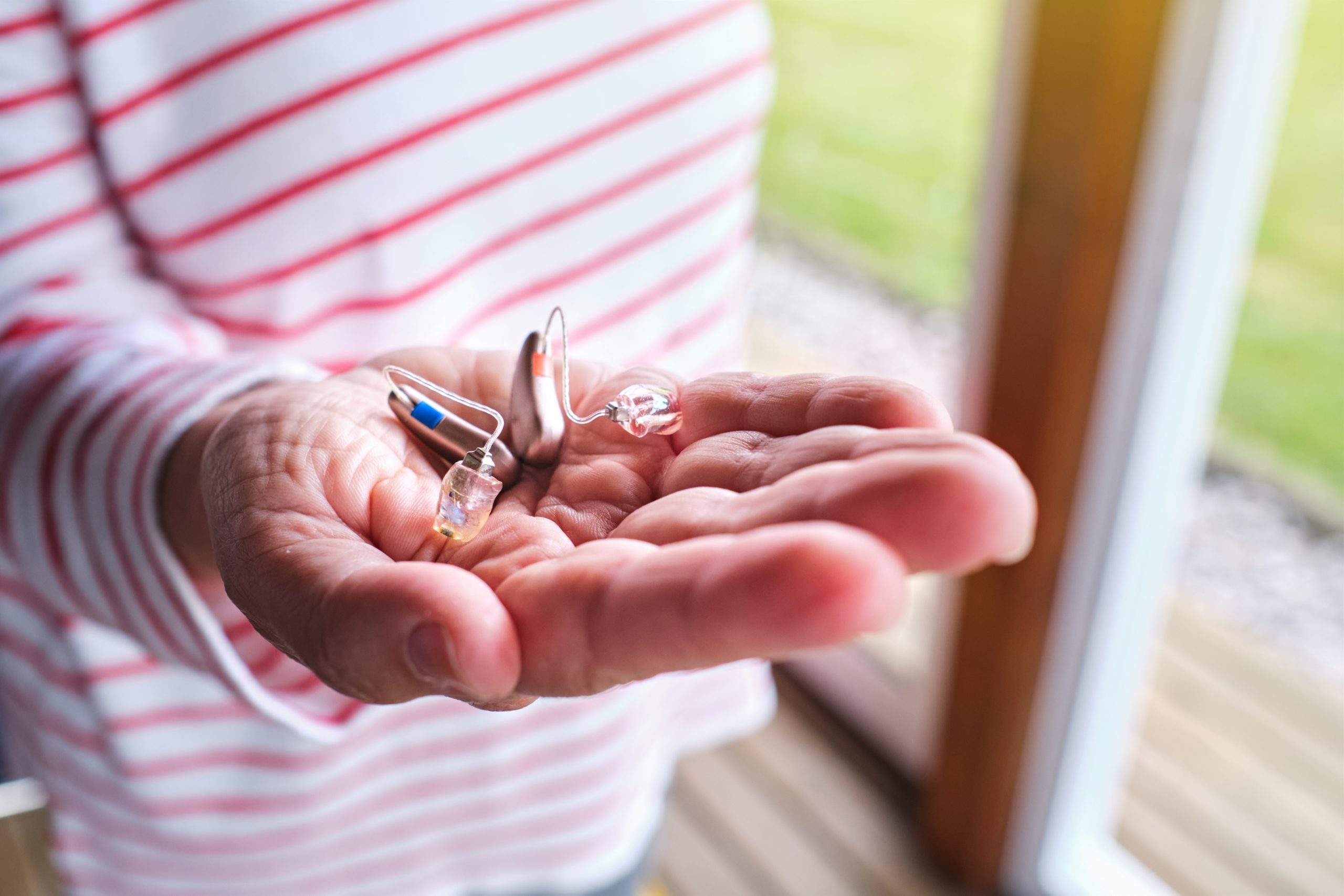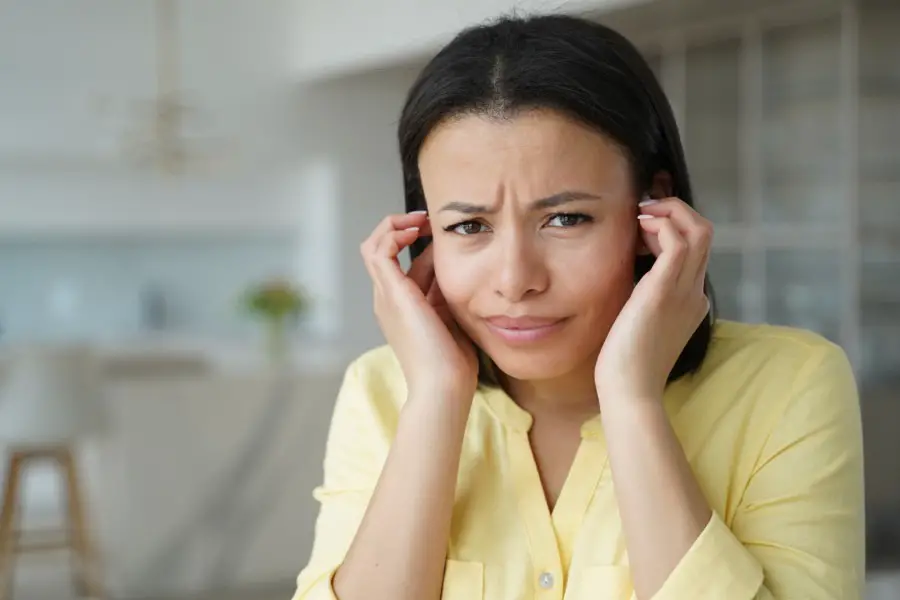Introduction
Supporting an individual with sensorineural hearing loss demands a blend of patience and exploration. As we strive to understand this condition better, we are constantly looking for effective strategies to manage it and enhance the quality of life of our loved ones. While traditional treatments are indispensable, the inclination towards holistic and complementary therapies is increasing. These therapies offer distinct advantages, supplementing conventional treatment.
In this enlightening article, we will explore five holistic methods – acupuncture, yoga, sound therapy, meditation, and nutrition – and their prospective benefits for sensorineural hearing loss. Although scientific research is still advancing, anecdotal experiences and preliminary studies imply that these strategies may provide valuable advantages. It’s crucial to consider these therapies as supplementary to, not substitutes for, conventional treatments, and always seek advice from healthcare professionals before beginning any new routine.
The intent of this article is not to provide medical advice, but to illuminate emerging areas of interest, stimulate discussions, and offer a platform for shared learning and exploration. For those who are eager to expand their understanding and potentially enrich their mechanisms for dealing with sensorineural hearing loss, this article is for you.
Bear in mind that each individual is different, and what is effective for one person might not work for another. The key is in comprehending these practices, discussing potential benefits and risks with healthcare professionals, and making informed choices based on personal needs and situations.
AMZ-Lexie Lumen Self-Fitting OTC Hearing Aids
Experience the Ultimate Sound Quality with Lexie Lumen self-fitting OTC hearing aids. These remarkable devices utilize dual microphones to deliver crystal clear sound, immersing you in a world of auditory excellence. Say goodbye to communication struggles in public spaces or on phone calls, as our Telecoil functionality directs speech directly to your hearing aids via an induction loop system. Rediscover the joy of hearing with unmatched clarity and precision.
Embrace an Active Lifestyle with Lexie Lumen hearing aids. Our cutting-edge sweatproof technology, including Nano coating, safeguards against moisture damage, allowing you to wear your hearing aids during outdoor activities like walks, runs, and open-air events. With Lexie, you can live life to the fullest without compromising on the quality or lifespan of your devices. Don’t let hearing loss hold you back—experience the freedom of superior hearing with Lexie Lumen self-fitting OTC hearing aids.
“Investigating the Role of Acupuncture in Sensorineural Hearing Loss: A Review of the Evidence”
Acupuncture is a traditional Chinese medical practice that involves the insertion of thin needles at particular points in the body. It is believed to balance the body’s energy flow, or ‘qi’, and has been used to tackle various health problems. But what about its potential benefits for sensorineural hearing loss?
Preliminary research indicates that acupuncture could potentially help in managing symptoms of sensorineural hearing loss. For example, a study published in the “International Journal of Clinical Acupuncture” reported that combining acupuncture with traditional Chinese medicine had a positive effect on sudden sensorineural hearing loss. However, these studies often involve small participant groups, and larger scale research is necessary.
Anecdotal evidence also suggests that some people with sensorineural hearing loss have experienced improved hearing and decreased tinnitus following acupuncture sessions. However, these are individual experiences, and results can vary significantly from person to person.
While these initial findings are promising, they are still in the preliminary stages. Further in-depth studies are necessary to establish a definite link between acupuncture and improved symptoms of sensorineural hearing loss. It is also vital to seek advice from a healthcare provider before commencing acupuncture, as it may not be appropriate for everyone and could interact with existing treatments.
“Potential Benefits of Yoga for Sensorineural Hearing Loss”
Yoga, an ancient Indian practice, integrates physical poses, breath control, and meditation. It is broadly acknowledged for its stress management, flexibility enhancement, and overall well-being promotion capabilities. But can yoga also provide potential benefits for sensorineural hearing loss?
While scientific research directly linking yoga to improved symptoms of hearing loss is limited, yoga’s proven capabilities in reducing stress and promoting relaxation might indirectly aid those suffering from sensorineural hearing loss. Stress is known to worsen tinnitus, a common symptom of this condition. Therefore, stress-reducing practices like yoga could potentially be beneficial.
Additionally, yoga encourages a profound sense of mindfulness, which could help individuals cope better with their hearing loss. Through fostering an awareness of the present moment, individuals practicing yoga can learn to navigate their daily life with increased resilience and acceptance.
Although direct scientific evidence is lacking, anecdotal accounts suggest that yoga’s calming and centering effects can enhance the quality of life for those living with sensorineural hearing loss. It’s always important to remember that yoga should be used as a supplementary approach and not as a replacement for conventional treatments.
For the sake of completeness, the rest of the post includes discussions on the potential benefits of sound therapy, meditation, and nutrition for managing sensorineural hearing loss.
“Sound Therapy and Its Implications for Sensorineural Hearing Loss”
Sound therapy is an intriguing field that utilizes sound frequencies to stimulate the brain and may help manage certain aspects of hearing loss. The therapy operates on the principle that different sounds can affect our nervous system in various ways.
In the context of sensorineural hearing loss, sound therapy primarily aids in managing tinnitus. Tinnitus, a condition characterized by a persistent ringing in the ears, often accompanies hearing loss. Sound therapy works by using external noise to alter the patient’s perception of, or reaction to, tinnitus. Sound generators, hearing aids, and specialized ear-level devices (maskers) can create white noise, nature sounds, or music to alleviate the tinnitus.
Though sound therapy isn’t a cure for hearing loss, it is a promising tool in the arsenal for managing its symptoms, especially tinnitus. Remember, it’s always recommended to consult with an audiologist or hearing healthcare provider before implementing any new treatments.
What to Look for in Inexpensive Hearing Aids
“Meditation: A Mental Retreat for Sensorineural Hearing Loss Sufferers?”
Meditation, an age-old practice of quieting the mind and focusing on the present, has a myriad of scientifically backed benefits, including reduced stress, enhanced focus, and improved emotional well-being. While not a direct treatment for hearing loss, meditation could potentially support individuals with sensorineural hearing loss.
Stress, anxiety, and emotional turmoil often accompany sensorineural hearing loss. The calming, stress-reducing benefits of meditation can provide a mental retreat, helping individuals to cope with these challenges. Moreover, through meditation, individuals can develop an enhanced capacity for acceptance and adaptability, crucial skills for managing the changes and challenges that come with hearing loss.
CBD for Tinnitus: Can It Stop the Ringing?
“Sensorineural Hearing Loss and Nutrition: Is There a Connection?”
The impact of diet on overall health is undeniable. But can it influence sensorineural hearing loss? Some research suggests it could.
Certain nutrients, like omega-3 fatty acids and folic acid, are hypothesized to have potential benefits for hearing health. For example, a study published in the “American Journal of Clinical Nutrition” suggested a link between higher fish intake, a rich source of omega-3, and a lower risk of age-related hearing loss.
Another research published in “Otolaryngology – Head and Neck Surgery” found a correlation between lower homocysteine levels (achievable through folic acid intake) and a reduced risk of bilateral sensorineural hearing loss in women. However, it is essential to note that while these studies suggest a correlation, they do not imply a direct cause-effect relationship.
Before making significant dietary changes or taking supplements, it’s essential to consult with a healthcare provider to ensure these alterations align with overall health goals and existing treatments.
Conclusion
Sensorineural hearing loss impacts a multitude of people globally. While the condition is generally irreversible, a variety of holistic practices can potentially assist in managing symptoms and improving the quality of life. Be it acupuncture, yoga, sound therapy, meditation, or nutrition, each of these methods provides a unique perspective on healing.
However, it’s important to remember that these holistic practices are not substitutes for conventional medical treatments but potential complements. The goal is to address sensorineural hearing loss from multiple perspectives, implementing a comprehensive strategy that deals with both the physical and mental aspects of the condition.
Living with sensorineural hearing loss is a journey filled with challenges, but also an opportunity to discover new ways of connecting with the world and oneself. This journey encourages a deeper understanding and empathy towards the human condition, underscoring the importance of diversity, accessibility, and inclusivity.
In our endeavor to manage sensorineural hearing loss, we must also strive to challenge societal norms and prejudices about the condition. Only through collective efforts can we hope to foster a world that not only recognizes but also respects and celebrates the diversity of human experiences.
Each person’s experience with sensorineural hearing loss is unique, but one fact remains consistent: everyone deserves to live in a world where our voices are heard, our experiences are recognized, and our rights are protected.
As we have explored, these holistic practices offer potential supplementary benefits for managing sensorineural hearing loss. While none of them serve as a direct treatment for the condition, they could potentially support an individual’s overall well-being, contributing to a more comprehensive approach to managing sensorineural hearing loss.
Remember, everyone’s journey with sensorineural hearing loss is unique. What works for one person may not work for another. The key is to experiment, remain open to new experiences, and find a holistic balance that aligns with one’s personal needs and medical treatments.
Finally, it’s crucial to consult with healthcare providers before implementing any of these practices. They can provide personalized advice and help integrate these practices into an overall treatment plan safely and effectively.
Living with sensorineural hearing loss is not an easy path, but with patience, resilience, and a holistic approach, one can navigate the journey with a greater sense of control and optimism.

Walking in Their Shoes: A Closer Look at the Lives of Seniors with Otosclerosis
Introduction Otosclerosis, a hearing condition that primarily affects the bones in the ear, presents unique

Unveiling Otosclerosis: Understanding Its Impact and Navigating Life
Introduction Imagine the orchestra of life gradually tuning down until the world around you becomes






